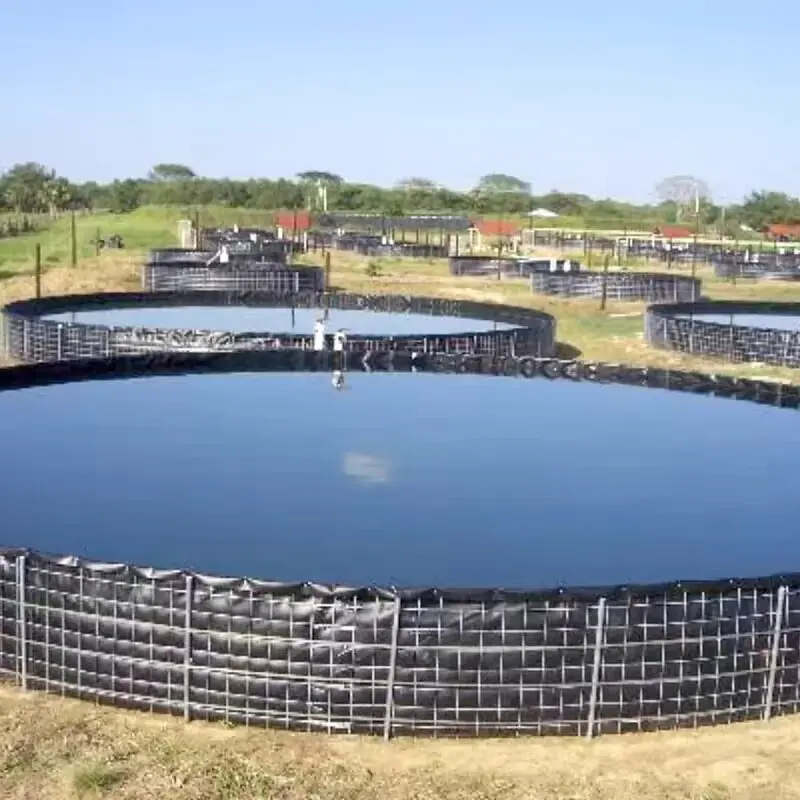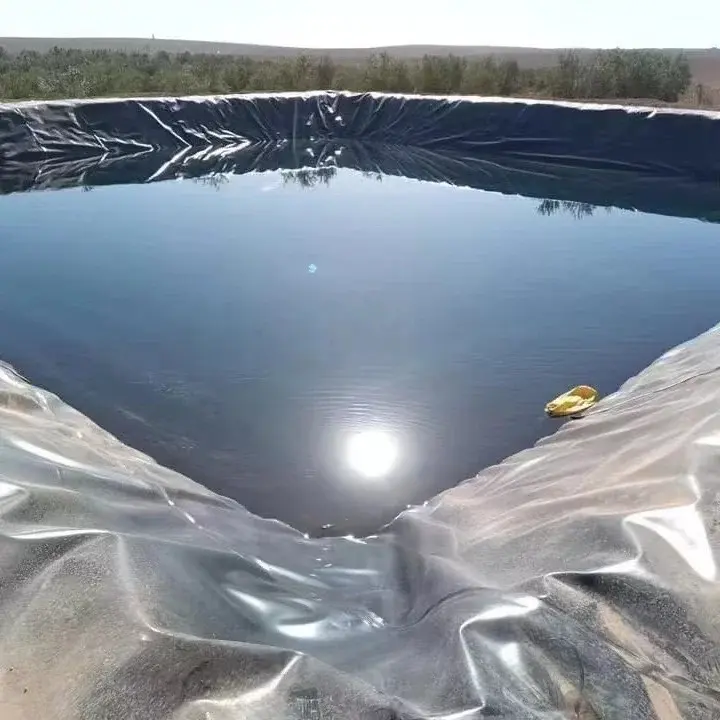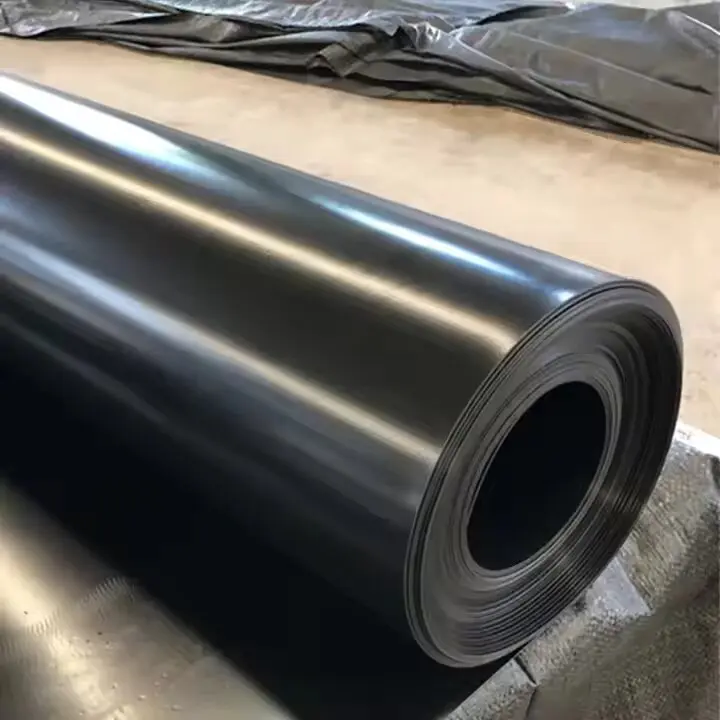In recent years, geomembranes have gained significant recognition as an essential material in various engineering and environmental applications. Among these, the 0.5mm geomembrane has emerged as a versatile solution for projects requiring durability, impermeability, and cost-efficiency. The Philippines, with its unique geographical and environmental challenges, has increasingly adopted geomembranes for applications in agriculture, aquaculture, waste management, and infrastructure development. This article explores the applications, benefits, and impact of 0.5mm geomembranes in the Philippines.
Key Features of 0.5mm Geomembranes
The 0.5mm high-density polyethylene (HDPE) geomembrane is engineered to provide exceptional properties, including:
Durability and Resistance:
Resistant to UV radiation and chemical exposure, ideal for tropical climates like the Philippines.
High tensile strength ensures long-term performance under varied stress conditions.
Impermeability:
Effective in preventing liquid seepage, making it suitable for applications in water containment and waste management.
Flexibility:
Easy to install and conform to uneven terrains, enabling use in diverse projects.
Environmental Compatibility:
Manufactured from virgin raw materials, ensuring non-toxic properties that are safe for ecosystems.

Applications in the Philippines
The 0.5mm geomembrane has found widespread use across multiple sectors in the Philippines:
1. Aquaculture
Aquaculture is a booming industry in the Philippines, accounting for a significant portion of the country's GDP. Fish and shrimp farming, in particular, rely on controlled environments to maximize yield.
Role of Geomembranes:
Used as pond liners to create impermeable barriers, preventing water leakage and contamination.
Facilitate better water quality management, reducing the risk of disease outbreaks among aquatic species.
Case Study: Coastal fish farms in regions like Pangasinan and Palawan have reported improved productivity and reduced maintenance costs by integrating 0.5mm geomembrane liners into their operations.
2. Agriculture
Agricultural activities in the Philippines often face challenges related to water conservation and soil degradation.
Applications:
Liners for irrigation canals and reservoirs, ensuring efficient water storage and distribution.
Used in rainwater harvesting systems to address water scarcity during dry seasons.
Impact:
Farmers in Mindanao and Luzon have adopted geomembrane-lined reservoirs to mitigate water loss and enhance crop yields.
3. Waste Management
The Philippines faces mounting pressure to improve waste management systems due to rapid urbanization.
Role of 0.5mm Geomembranes:
Used in landfill liners to prevent leachate from contaminating soil and groundwater.
Serves as a barrier in hazardous waste containment, ensuring environmental safety.
Examples:
Major landfill projects in Metro Manila and Cebu have incorporated geomembranes as part of sustainable waste management strategies.
4. Infrastructure Development
Infrastructure projects often involve complex challenges such as erosion control and seepage prevention.
Applications:
Used in road construction to reinforce soil stability.
Liners for flood control systems, particularly in flood-prone areas like Metro Manila.
Benefits:
Enhances the longevity of infrastructure by reducing water-induced damage.

Advantages for the Philippines
The adoption of 0.5mm geomembranes offers several advantages tailored to the Philippines’ needs:
Cost-Effective Solutions:
Affordable compared to traditional methods such as concrete linings, without compromising on performance.
Environmental Protection:
Minimizes environmental impact by preventing contamination and enabling sustainable practices.
Adaptability:
Versatile applications across industries, from agriculture to waste management.
Climate Resilience:
Withstands harsh weather conditions, ensuring reliable performance even during typhoons and heavy rains.
Challenges and Future Prospects
While the benefits are substantial, challenges remain in the widespread adoption of geomembranes in the Philippines:
Awareness and Training:
Many industries are still unaware of the benefits and applications of geomembranes.
Training programs for proper installation and maintenance are essential.
Cost Perception:
Initial investment may seem high to small-scale farmers or businesses, though the long-term savings outweigh the upfront costs.
Local Manufacturing:
Promoting local production of geomembranes could reduce costs and make the material more accessible.
Future Prospects
Government initiatives and private sector partnerships can drive the use of geomembranes in key projects.
Increasing focus on sustainability and environmental protection will further expand the demand for geomembranes.
Item | Unit | Index | |||||||||
1 | Thickness | mm | 0.30 | 0.50 | 0.75 | 1.00 | 1.25 | 1.50 | 2.00 | 2.50 | 3.00 |
2 | Density | g/cm3 | ≧0.940 | ||||||||
3 | Tensile yield strength | N/mm | ≧4 | ≧7 | ≧10 | ≧13 | ≧16 | ≧20 | ≧26 | ≧33 | ≧40 |
4 | Tensile breaking strength | N/mm | ≧6 | ≧10 | ≧15 | ≧20 | ≧25 | ≧30 | ≧40 | ≧50 | ≧60 |
5 | Yield elongation | % | - | - | - | ≧11 | |||||
6 | Break Elongation | % | ≧600 | ||||||||
7 | Right-angle Tearing strength | N | ≧34 | ≧56 | ≧84 | ≧115 | ≧140 | ≧170 | ≧225 | ≧280 | ≧340 |
8 | Puncture strength | N | ≧72 | ≧120 | ≧180 | ≧240 | ≧300 | ≧360 | ≧480 | ≧600 | ≧720 |
9 | Carbon black content | % | 2.0~3.0 | ||||||||
10 | Dispersion of carbon black | - | There is not more than one level 3 in 10 data, and level 4 and level 5 are not allowed to exist. | ||||||||
11 | Oxidation induction time | min | ≧60 | ||||||||
12 | Low temperature impact embrittlement properties | - | Pass | ||||||||
13 | Water vapor permeability coefficient | g.cm/ (cm2.s.Pa) | ≦1.0*10-13 | ||||||||
14 | Dimensional stability | % | ±2.0
| ||||||||
Note | Technical performance indicators for thickness specifications not listed in the table are required to be performed by interpolation. | ||||||||||
The 0.5mm geomembrane is a transformative material for the Philippines, addressing critical challenges in agriculture, aquaculture, waste management, and infrastructure. With its durability, impermeability, and environmental benefits, it aligns perfectly with the nation’s drive for sustainable development. By investing in awareness, training, and local production, the Philippines can fully harness the potential of geomembranes, paving the way for a cleaner and more resilient future.
![]() 0.5 Double-sided smooth HDPE geomembrane.pdf
0.5 Double-sided smooth HDPE geomembrane.pdf
If you are interested in our products, please contact Tracy:
Tel&WhatsApp:+86 17853574041
Email:sale@hygeosynthetics.com

897.webp)
942.webp)
237.webp)